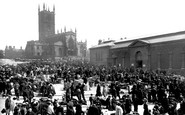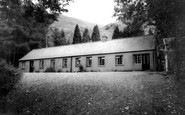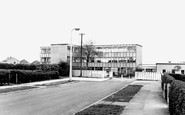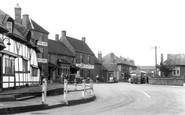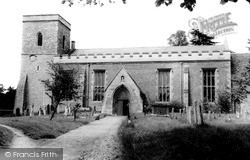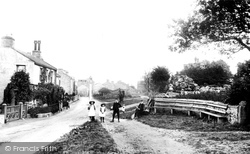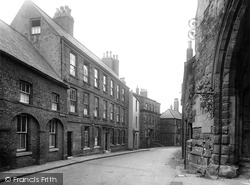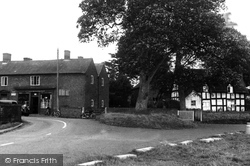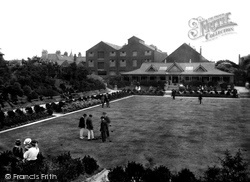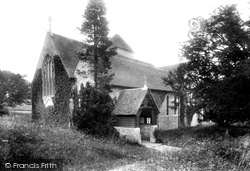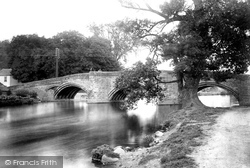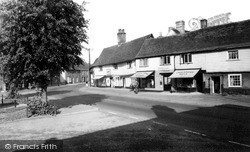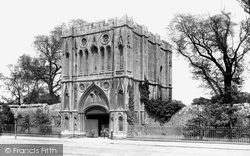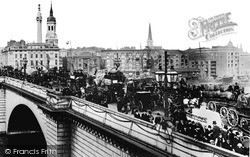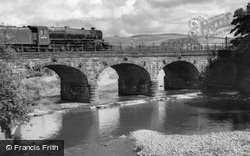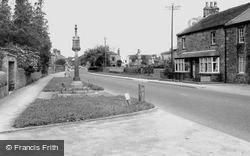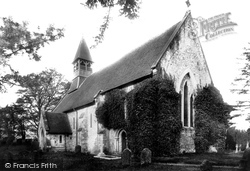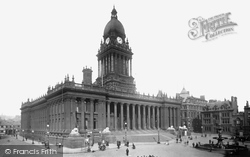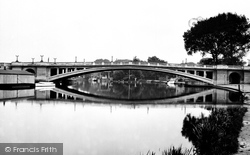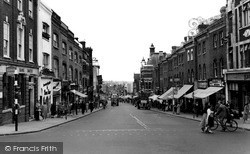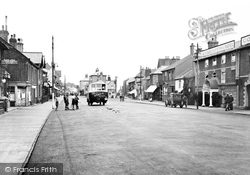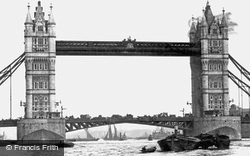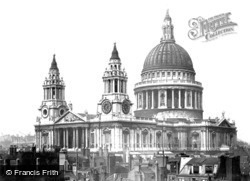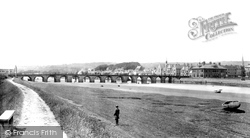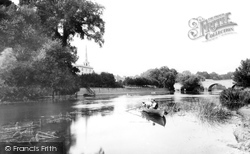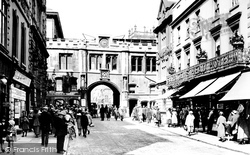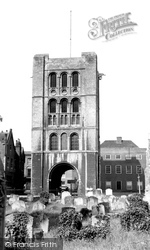Places
Sorry, no places were found that related to your search.
Photos
5 photos found. Showing results 281 to 5.
Maps
83 maps found.
Books
Sorry, no books were found that related to your search.
Memories
1,128 memories found. Showing results 141 to 150.
1973 Demolition Year For The Market Buildings
I arrived in Wolverhampton when demolition of the market buildings was under way. The buildings in front of the church (in the photo) must have already been long gone, but the buildings on the side ...Read more
A memory of Wolverhampton
Belgians In Birtley.
Few people are aware of the part Birtley, Tyne Wear, (part of County Durham in those days ) played in the Great War of 1914 - 1918. Belgium in 1914 was occupied by the German Army, and thousands of refugees fled to Britain where ...Read more
A memory of Birtley by
Stan Laurel's Ulverston
The thin half of the world's greatest movie comedy duo, Laurel and Hardy, was born in Foundry Cottages, Ulverston, now Argyle St., in 1890. He was born and lived in his grandparents' home until the age of 6. His grandfather, ...Read more
A memory of Ulverston by
The Down And Up
We went to stay at Plas-Y-Nant, Easter, Whit and Summer every year in the 50s. It was simply wonderful. Yes, I remember Auntie Lena and the whole range of little customs and practices we willingly engaged in. Not the least ...Read more
A memory of Betws Garmon in 1955 by
Argent Street Grays
I too, was born in Argent Street, No 85, next door to Potters Shop. Only the alleyway divided our house from them, and two doors away from The Castle. I have fond memories of growing up in the early sixties, and my adventures ...Read more
A memory of Grays in 1958 by
Happy Days At Brimington School?
I attended Brimington Boys from 1962 - 1966. The Headmaster during my school time was the arch nemises of all pupils, Mr D Kelly. Looking back now I have nothing but admiration and a great respect for him and his ...Read more
A memory of Brimington in 1962 by
Ode To Wallsend
ODE TO WALLSEND I was born at Wallsend Village green in the heart of Wallsend Town, I spent my childhood in an era great to be around, We all grew up together and played in our back lanes, My cousins and my neighbours in the ...Read more
A memory of Wallsend in 1976 by
The Ridge
I lived at 71 The Ridge for 20 years from 1946 to 1966 when I went to Agricultural college. I still have happy memories of going to the youth club in the Church hall. Playing games and helping in harvest time at Top Farm, long ...Read more
A memory of Great Doddington by
Wonderful Memories Of A 1970's Kid...Also Asking For Some Help If Possible.
I grew up in Bristol for the first 5 years of my life, then moved to Byfleet, and lived there for a short time until I was 10. We emigrated to the states because my Dad, who ...Read more
A memory of Byfleet by
Ark In The Square: Polesworth
I had heard so much about this village & surrounding areas from my father, Arch Wallbank, who was born 1896 @ 46 Watling St. the corner of New st. he left for NZ in Oct. 1913 & died Auckland 1965.. My Knight ...Read more
A memory of Polesworth by
Captions
1,233 captions found. Showing results 337 to 360.
All Saints' Parish Church was rebuilt in 1837 by William Fisher from Oxford, who kept the plain 13th-century west tower and reused several windows, doorways and arches.
Lying about ten miles east of Hawes, Aysgarth is famous for a series of waterfalls on the River Ure, the upper of which can still be viewed from a 16th-century single-arch bridge.
The entrance to St Chad's is the arched opening on the right.
A number of late medieval timber-framed thatched cottages remain, such as the one shown here; Magpie Cottage was, and is, a much photographed symbol of the village.
Flowerbeds, paths, rockeries, a waterfall, and a random stone arched bridge all enhanced the gardens further. The bowling green was an instant success.
This neat church is basically Norman, and was so badly neglected during early Victorian times and was in such a poor state of repair that it was heavily restored in 1865.
Eamont Bridge, just south of Penrith on the A6, takes its name from this splendid three-arched bridge across the River Eamont.
Behind the tree is the arched entrance to the stable yard of the former Swan Inn, which still has a painted sign 'Ring for Ostler'.
The arches on the front had statues in them, which were destroyed after 1539.
This five-arched granite structure was constructed in 1827 from the designs of John Rennie. Its excessive cost was once the talk of the city.
Built around 1840 to carry the London and North Western railway line north through Lancashire, this splendid six-arch bridge strides across the River Wyre just below Scorton Lakes.
A priest and historian, amongst his many works was a much-acclaimed eight-volume 'History of England'.
It appears that it had an apse, which has now gone, and so has the chancel arch. The font and fittings have been replaced.
When Leeds town hall was opened by Queen Victoria, the streets were lined with palm trees and triumphal arches.
Reading Bridge is an elegant reinforced concrete one, with a single main span and Brunel-like arches on each bank. Opened in 1923, it is an examplar of what can be done in the material.
The first floor windows are arched and decorated with different coloured bricks, a style known somewhat grandiosely as 'Constructional Polychromy'.
His poem about the embittered fisherman Peter Grimes inspired an opera by a much later and better known resident, Benjamin Britten.
Mock Gothic turrets were added, a profusion of sharply arched windows and much other sham detailing. To many the stupendous structure had the look of an ornate medieval castle.
In the form of a cross, it is built in the Corinthian style, and surmounted by the giant dome which rises on arches over the centre.
With sixteen stone arches, much of the original fabric survives after a widening in 1796.
The bridge is remarkable too, and long, with seventeen arches, three of them medieval, three of 1809 and the rest of 1751.
This view shows the ornate cast-iron balcony of the Saracen's Head Hotel, now shops, and the tower of St Peter at Arches beyond Stone Bow, built in 1720, demolished in 1933 and largely rebuilt in Lamb
In the form of a cross, it is built in the Corinthian style, and surmounted by the giant dome which rises on arches over the centre.
Much of the Abbey would have been designed with arches, openings and decorations similar to those that survive on the Norman Tower.
Places (0)
Photos (5)
Memories (1128)
Books (0)
Maps (83)

